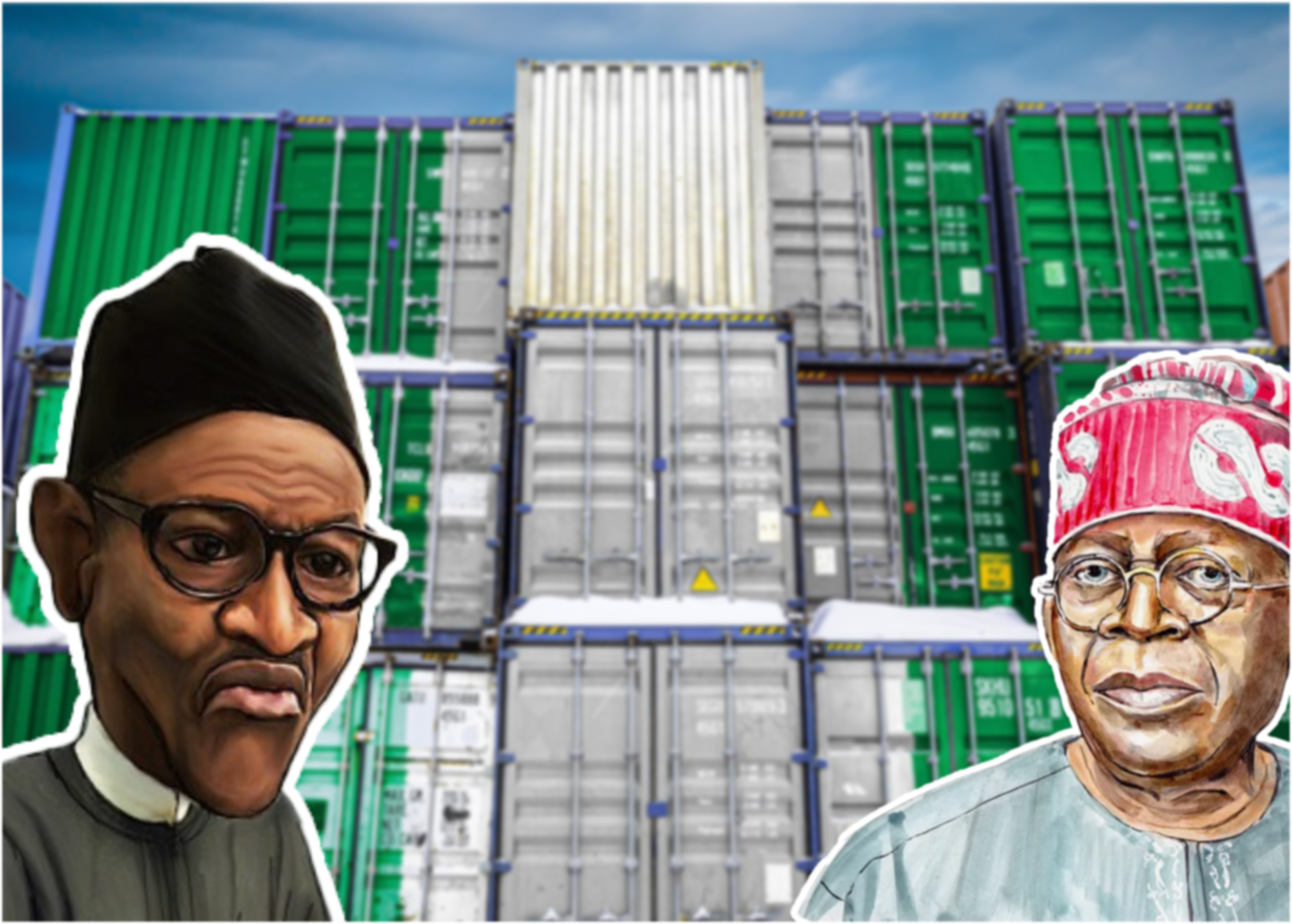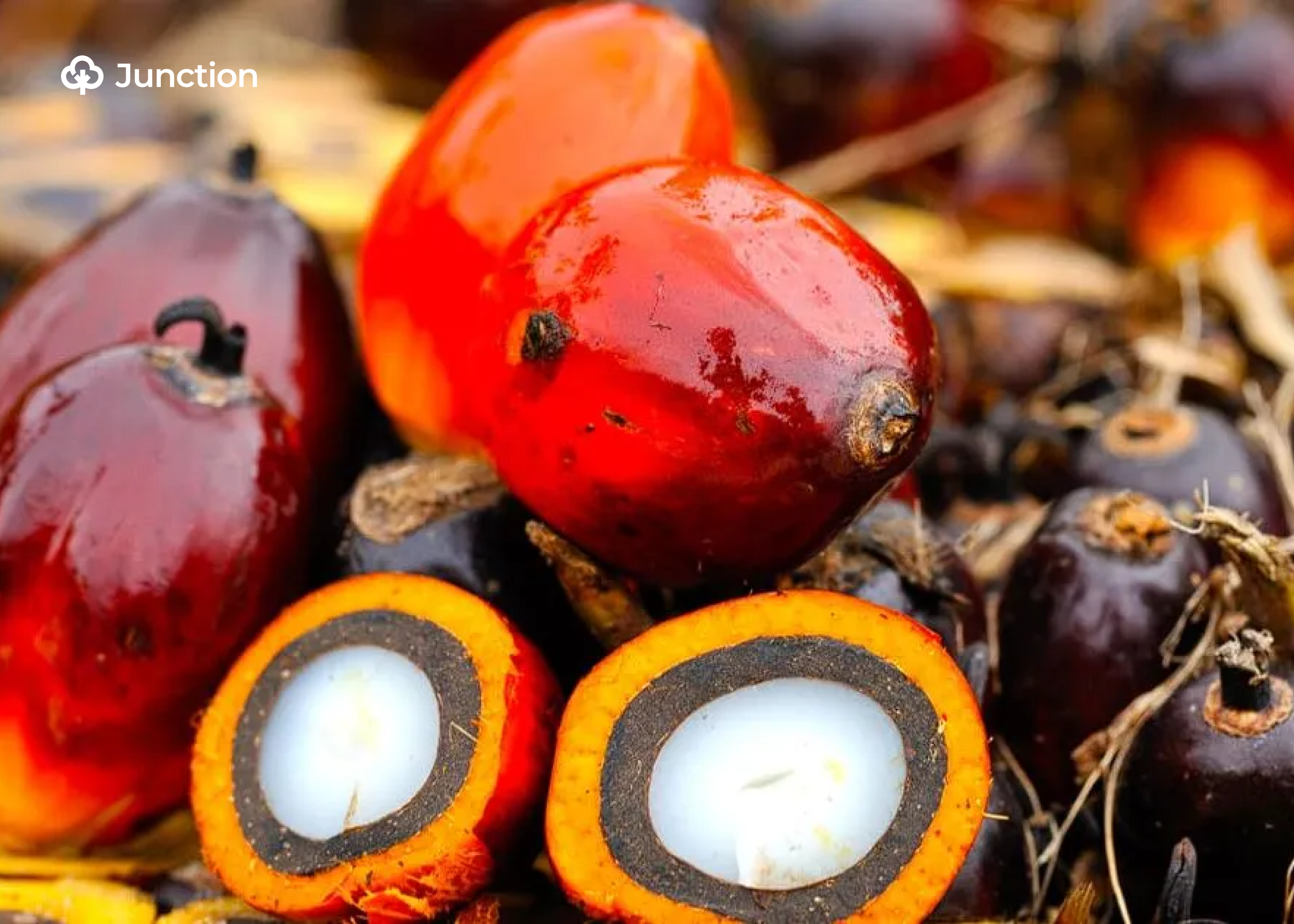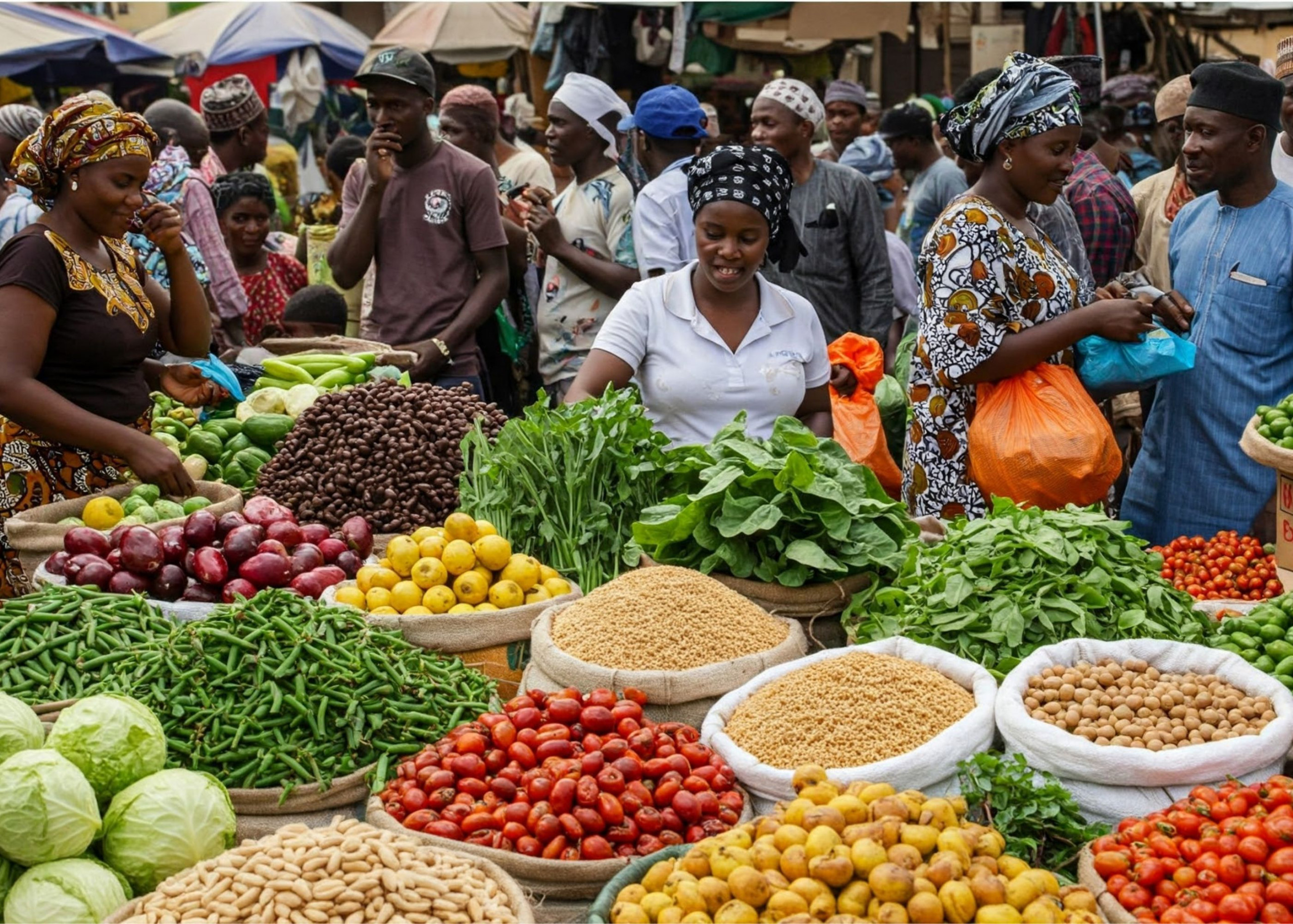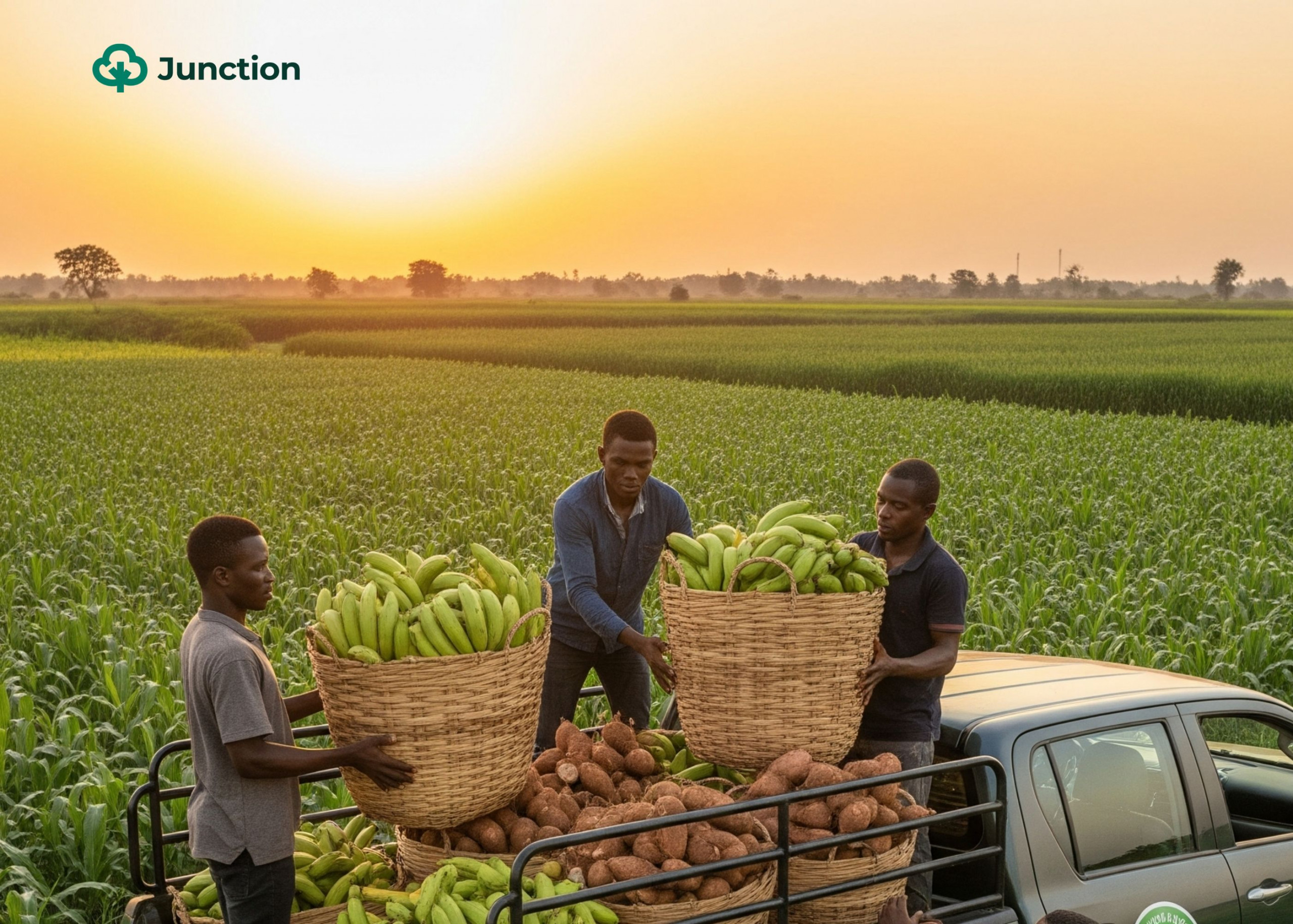Agricultural imports have long been a contentious issue in Nigeria, where balancing local food production and the need for foreign agricultural commodities remains a challenge.
President Muhammadu Buhari’s administration leaned heavily on protectionist policies, aiming to reduce import dependency and bolster local production.
Bola Tinubu, on the other hand, in his first year in office, has adopted a more liberal approach, allowing a freer flow of agricultural imports to stabilise the market.
This article explores the differences between the two approaches and their impact on Nigeria’s food security, food prices, and broader economic stability.
Buhari’s protectionism: promoting local production at a cost
Muhammadu Buhari’s presidency (2015-2023) was marked by efforts to protect local farmers and reduce Nigeria’s reliance on imported food. His administration placed restrictions on foreign exchange (forex) for importing certain agricultural products and banned the importation of several food items like rice and poultry. The aim was to encourage local production and make Nigeria self-sufficient in key staples.
On the surface, this approach yielded results. Nigeria’s rice production grew significantly, producing an average of 9.6 million metric tons five years into his tenure, against 5.2 million tonnes five years before, according to the Food and Agriculture Organization (FAO).
Millions of farmers benefited from government support under programs like the Anchor Borrowers’ Scheme, which disbursed ₦1.1 trillion to smallholder farmers between 2015 and 2022.
Rice imports, once a significant drain on foreign exchange, were also dramatically reduced from 831 thousand metric tons in 2014 to 26,194 metric tons by 2020, according to the FAO.
However, there were visible cracks in this strategy over time. Bans on imported rice led to supply shortages, increasing prices and making food less affordable for millions of Nigerians. The price of a 50kg bag of rice, for example, which cost around ₦8,000 in 2015, surged to ₦35,000 by 2022. But supply issues were not the only driver of food inflation. Rising production costs, poor infrastructure, and insecurity in key agricultural regions also contributed to the steep increase in food prices. Farmers faced challenges such as inadequate access to fertiliser, poor road networks for transporting goods, and persistent conflicts with herders in northern Nigeria, all of which hampered production.
While local production improved for certain staples, such as rice and maize, it wasn’t sufficient to meet the country’s overall food demand. By the end of Buhari’s administration, annual food inflation had reached 21.79%, with staples like maize, wheat, and cassava experiencing significant price hikes. The combination of supply constraints and broader production challenges placed a substantial strain on consumers.
Tinubu’s liberalisation: stabilising supply, but at what cost?
President Bola Tinubu, who assumed office in June 2023, took a different approach to agricultural imports. His administration, while continuing to support local production, adopted more liberal trade policies, allowing for the increased importation of essential food commodities like wheat, dairy, and fish. This shift was partly driven by immediate concerns over food shortages and escalating inflation, which had reached crisis levels.
By relaxing some of the forex restrictions imposed by the previous government, Tinubu sought to ease food supply pressures, particularly in urban areas where demand for imported food products was high.
As a result, imports of essential commodities increased. For example, wheat imports rose from 5 million metric tons in 2022 to an estimated 6 million metric tons in 2023, driven by increased demand and supply gaps in local production. Nigeria’s dependence on imported wheat is particularly significant, given the challenges faced by local farmers in scaling production. The wheat import surge highlights the broader issue of inadequate domestic production capacity for key staples, which puts additional pressure on food security and inflation.
However, this liberalisation came at a cost. Tinubu’s stance made Nigeria more vulnerable to global price fluctuations and exposed the economy to external shocks. For instance, the ongoing Russia-Ukraine war which disrupted wheat supplies and drove up the cost of wheat globally. Despite the increased availability of imported goods, annual food inflation surged to 40.87% by mid-2024, exacerbated by the depreciation of the naira and rising import costs. The naira weakened significantly, with the exchange rate hovering around ₦1,600 to the dollar, up from ₦460 in mid-2023, placing further pressure on import prices.
Agricultural import trends: Buhari vs. Tinubu
A closer look at the import trends during both administrations highlights the key differences in their agricultural trade policies.
Under Buhari, Nigeria’s agricultural import bill averaged around ₦850 billion annually between 2017 and 2022. Despite efforts to cut down imports, Nigeria remained dependent on foreign wheat, dairy, and fish, all of which contributed significantly to the overall import bill. Wheat alone accounted for ₦700 billion of Nigeria’s import expenditure in 2021, according to the National Bureau of Statistics (NBS). Restrictions on imports, coupled with forex limitations, strained domestic supply and contributed to rising food prices.
Tinubu’s first year in office (June 2023 – June 2024) saw agricultural imports rise sharply to an estimated ₦3 trillion, reflecting more than 40% increase from the previous year. This surge was largely driven by the liberalisation of forex for food imports and global inflationary pressures that pushed up the cost of agricultural commodities. Wheat imports alone cost Nigeria over ₦800 billion in 2024, a significant rise from previous years. This surge in imports helped ease food shortages in urban areas.
Impact on local agriculture and food security
The diverging import strategies of Buhari and Tinubu have had a significant impact on Nigeria’s local agriculture and food security.
Buhari’s protectionism provided a lifeline to local farmers, but the high cost of production and limited access to modern farming inputs meant that Nigeria never fully achieved self-sufficiency. For crops like rice, maize, and sorghum, domestic production increased, but many other food items, such as wheat and dairy, imports rose. The limited capacity of local farmers to meet national demand meant that food shortages persisted, contributing to food insecurity.
Tinubu’s liberalisation, while easing food shortages in the short term, has raised concerns about the future of Nigeria’s local agriculture. Cheaper imported food products are outcompeting locally produced goods, putting significant pressure on Nigerian farmers. In particular, local wheat farmers, who already struggled with production challenges, saw increased competition from foreign imports. If this trend continues, it could stifle the growth of the agricultural sector, increasing Nigeria’s reliance on imports and making the country more vulnerable to global food supply disruptions.
Additionally, the burden of food inflation remains heavy under both administrations. Rising food prices, exacerbated by global factors and Nigeria’s domestic currency challenges, have made it increasingly difficult for Nigerians to afford basic staples. As of July 2024, the price of a 50kg bag of rice had risen to ₦85,000, further squeezing household budgets.
Conclusion: balancing imports and domestic production
The contrasting agricultural import policies of Buhari and Tinubu offer lessons for Nigeria’s future. Buhari’s focus on local production aimed to reduce dependency on imports, but structural challenges in the agricultural sector, coupled with protectionist measures, led to inefficiencies and rising prices. Tinubu’s liberalisation policies have brought short-term relief to food shortages but at the cost of greater import dependency and vulnerability to global price shocks.
For Nigeria to secure its food future, a balanced approach is needed. Investments in modern agricultural technology, infrastructure, and farmer support programs must be prioritised to boost local production. At the same time, a pragmatic trade policy that allows for essential imports while protecting key sectors is necessary. By addressing these structural challenges, Nigeria can reduce its reliance on imports, stabilise food prices, and improve food security for its growing population.



